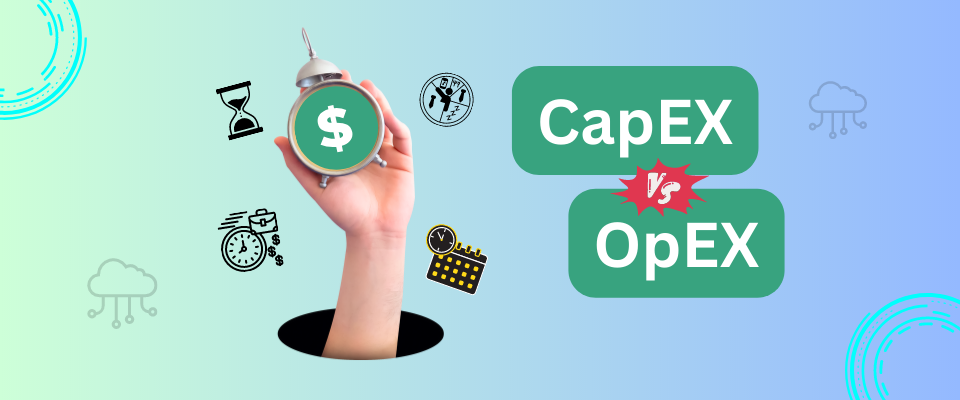Cloud - Concept
CapEX vs OpEX!
First the Definitions: CapEX vs OpEX.
CapEX (Capital expenditure) is the spending of money on physical infrastructure upfront and then deducting that expense from your tax bill over time. In simple terms, CapEx is like buying something that you'll use for a long time. Imagine purchasing a new car – you pay a big chunk of money upfront, and then you own the car, using it for years. In the business world, CapEx is money spent on long-term assets like buildings, equipment, or servers that will be used for several years. OpEX (Operating expenditure) is spending money on services or products now and being billed for them now. You can deduct this expense from your tax bill in the same year. Simply put OpEx, on the other hand, is more like regular spending on everyday things. Think of your monthly bills, like rent, groceries, or utility bills. These expenses keep happening over time to keep things running smoothly.
How OpEx relates to Cloud Computing?
Now, here's where OpEx and cloud computing come together. When a company chooses to use cloud computing, they shift some of their CapEx costs into OpEx costs. Instead of buying expensive servers and infrastructure upfront (CapEx), they rent computing power, storage, and other resources from cloud providers on a pay-as-you-go basis (OpEx). It's like paying for exactly what you use, just like paying for your monthly phone bill or electricity bill.
Advantages of OpEX
- Cost Flexibility:
- No Upfront Investment:
- Scalability:
Businesses can adjust their expenses based on their actual usage. When they need more resources, they pay more, and when they need less, they pay less.
There's no need to make a massive initial investment in hardware, which can be a big financial relief for small businesses or startups.
Cloud services can easily scale up or down as the company's needs change, giving them the flexibility to grow or downsize as required.
Examples of CapEX and OpEX:
| ◾ Building/premises purchase ◾ Physical data center ◾ IT equipment for IT and office staff ◾ Patents and Research ◾ Datacenter renovation ◾ Setup and supporting infrastructure costs ◾ Repairs beyond routine maintenance | ◾ Software licenses ◾ Subscription fee ◾ Software leasing ◾ Wages and salaries ◾ Rent and utilities |



